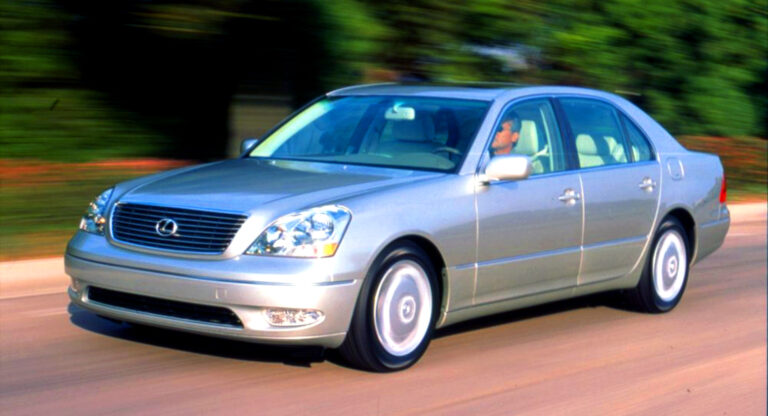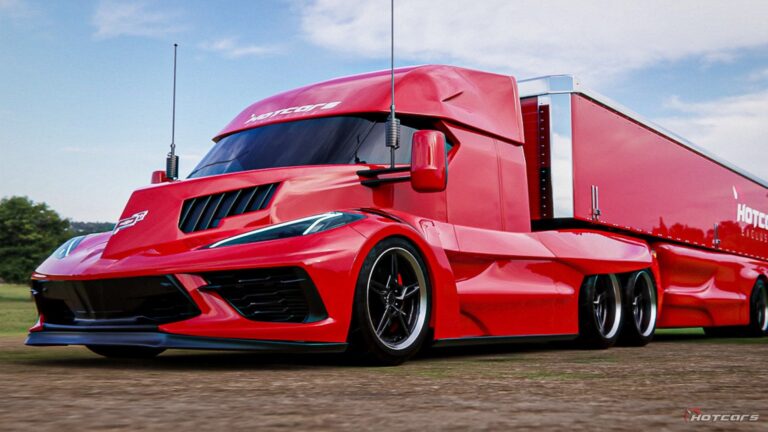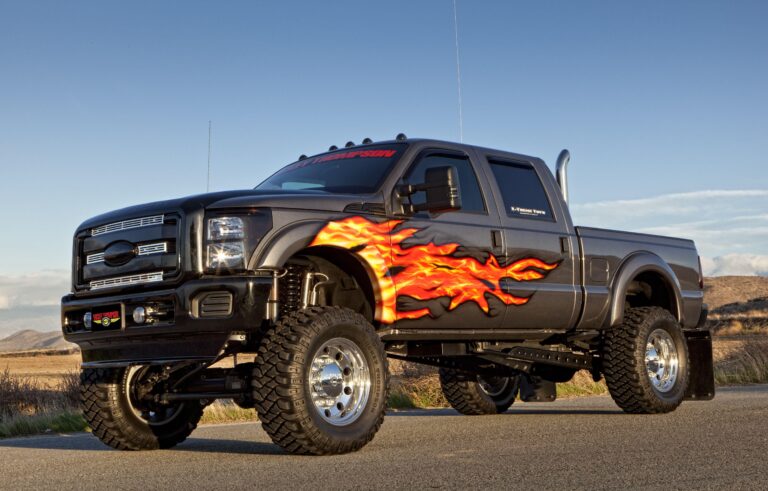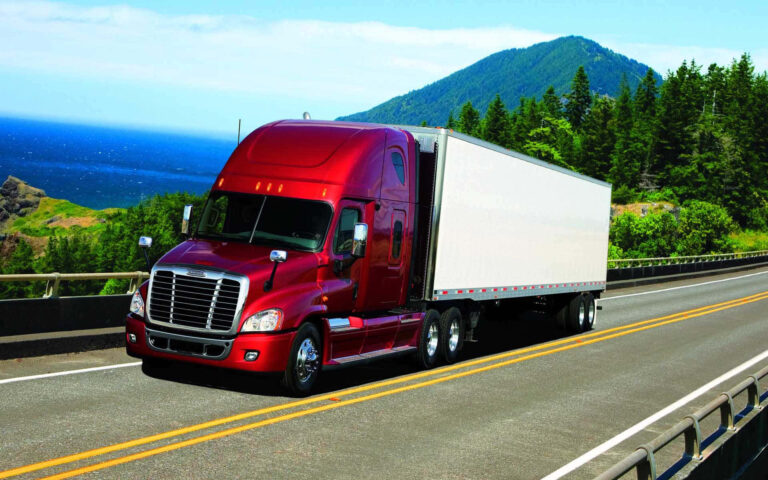U-Haul Car Hauler Rental Cost: A Comprehensive Guide
U-Haul Car Hauler Rental Cost: A Comprehensive Guide cars.truckstrend.com
Moving a vehicle, whether it’s a classic car, a non-running project, or simply your daily driver across state lines, often presents a logistical challenge. While driving it yourself might be an option for some, many turn to reliable solutions like the U-Haul Car Hauler. This specialized trailer allows you to tow a vehicle safely behind your truck or SUV, protecting it from wear and tear, or enabling the transport of a car that isn’t roadworthy. However, understanding the "U-Haul Car Hauler Rental Cost" is paramount to budgeting your move effectively. It’s not a fixed price; rather, it’s a dynamic figure influenced by numerous factors, ranging from the distance you plan to travel to the time of year you rent. This comprehensive guide aims to demystify the pricing structure, explore key considerations, and provide actionable insights to help you navigate the costs associated with renting a U-Haul Car Hauler.
Understanding the Basics: What is a U-Haul Car Hauler?
U-Haul Car Hauler Rental Cost: A Comprehensive Guide
Before delving into costs, it’s essential to grasp what a U-Haul Car Hauler entails. Unlike an auto transport dolly, which only lifts the front two wheels of a vehicle off the ground, a car hauler is a full trailer designed to carry the entire vehicle, keeping all four wheels off the road. This makes it ideal for:
- Long-distance moves: Minimizes wear and tear on the towed vehicle, saving on mileage, tire wear, and potential breakdowns.
- Transporting non-running vehicles: Essential for project cars, salvaged vehicles, or those with mechanical issues.
- Protecting valuable vehicles: Ensures high-end cars or classics are not exposed to road hazards.
- Complying with mileage limits: Some lease agreements or warranties have mileage restrictions, making towing a sensible option.
U-Haul car haulers are robust, feature integrated ramps for easy loading, and come equipped with security chains and tie-down straps to ensure the towed vehicle remains stable during transit.

Core Factors Influencing U-Haul Car Hauler Rental Cost
The cost of renting a U-Haul Car Hauler is not a one-size-fits-all number. Several key variables contribute to the final price. Understanding these factors will empower you to make informed decisions and potentially save money.
-
Distance/Route (Local vs. One-Way): This is arguably the most significant cost differentiator.
- Local Rentals: Typically involve picking up and returning the car hauler to the same U-Haul location. These are generally priced on a daily basis and are more economical for shorter distances or tasks where the trailer is returned quickly.
- One-Way Rentals: Allow you to pick up the car hauler at one U-Haul location and drop it off at a different one, often in another city or state. These rentals usually come with a higher base fee but offer unparalleled convenience for long-distance moves. The cost will directly correlate with the distance between the pick-up and drop-off points.
-
Duration of Rental: For local rentals, the number of days you keep the hauler directly impacts the cost. One-way rentals typically include a set number of days based on the distance, with extra charges for exceeding that allowance.
-
Location (Pick-up/Drop-off): Prices can vary based on supply and demand in specific geographic areas. Renting from a major metropolitan area might be more expensive than from a smaller town, or vice versa, depending on the availability of equipment.
-
Time of Year/Demand: Like many rental services, U-Haul experiences peak seasons. Summer months (May to August), weekends, and the end of each month are generally high-demand periods for moving equipment, leading to potentially higher prices and limited availability. Renting during off-peak times can often result in lower costs.
-
Availability: Booking in advance often secures a better rate and ensures the equipment you need is available. Last-minute rentals, especially during peak times, might be more expensive or simply unavailable.
-
Vehicle Being Towed: While the hauler rental cost isn’t directly tied to the value of the car you’re towing, U-Haul’s system does verify that your tow vehicle is capable of safely pulling the specific car hauler and the vehicle you intend to load onto it. This ensures safety and compliance with weight limits, indirectly influencing your ability to rent the hauler at all.
U-Haul Car Hauler Rental Cost: Breakdown of Components
When you receive a quote from U-Haul, it’s typically an itemized breakdown. Here are the common components you’ll see:
- Base Rental Fee: This is the core charge for the car hauler itself, determined by the factors mentioned above (distance, duration, location).
- Environmental Fee: A standard, small, flat fee applied to most U-Haul rentals to cover environmental disposal and maintenance costs.
- Sales Tax: Applied based on the sales tax rate of the state where the rental originates. This can vary significantly.
- Optional Add-ons: These can add to your total cost but often provide crucial benefits.
- Safetow® Insurance: Highly recommended. This optional coverage protects you from financial liability for damage to the rental equipment (the car hauler itself) and often offers supplemental liability coverage. While your personal auto insurance might cover towing, it’s crucial to verify your policy’s specifics. Safetow provides peace of mind. Costs vary but typically range from $8 to $15 per day or a flat fee for one-way rentals.
- Hitches and Wiring: If your tow vehicle isn’t already equipped with a proper hitch receiver, ball mount, and wiring harness for trailer lights, U-Haul can rent or sell these components and even install them. This is an additional cost that needs to be factored in if you’re not already prepared.
- Moving Supplies: While not part of the car hauler cost, many renters also get moving blankets, boxes, or hand trucks, adding to the overall expense of their move.
Local vs. One-Way Rentals: A Cost Comparison
The choice between a local and a one-way rental is perhaps the most significant determinant of your total cost.
-
Local Rentals:
- Pros: Generally much cheaper on a daily basis (often starting from $40-$60 per day). Ideal for short-distance towing, moving a car within the same city, or taking a car to a mechanic or show.
- Cons: Requires returning the hauler to the original pick-up location, which might involve extra driving or logistics if your destination is far from the pick-up point.
- Typical Cost Range: $40 – $150+ for 1-3 days, plus taxes and optional insurance.
-
One-Way Rentals:
- Pros: Ultimate convenience for long-distance moves, allowing you to drop off the equipment at your destination. The cost typically includes a set mileage and duration.
- Cons: Significantly more expensive than local rentals, as U-Haul needs to account for repositioning the equipment. Prices can range from a few hundred dollars to over a thousand, depending on the distance.
- Typical Cost Range: $200 – $800+ for short-to-medium distances (e.g., 200-800 miles), and $800 – $1,500+ for cross-country moves, plus taxes and optional insurance.
How to Get an Accurate U-Haul Car Hauler Rental Quote
The best way to get an accurate quote tailored to your specific needs is directly from U-Haul.
-
U-Haul Website (Recommended): The online reservation system is robust. You’ll need to input:
- Pick-up Location: City, state, or zip code.
- Drop-off Location: (If one-way) City, state, or zip code.
- Dates: Pick-up and estimated drop-off dates.
- Equipment Type: Select "Car Hauler."
- Tow Vehicle Details: Make, model, and year of the vehicle that will be towing the car hauler. This is crucial for U-Haul to verify compatibility.
- Towed Vehicle Details: Make, model, and year of the vehicle being towed on the car hauler. This helps confirm the hauler is suitable.
-
Phone Call: You can call 1-800-GO-UHAUL to speak with a representative who can provide a quote and assist with reservations.
-
In-Person: Visit your local U-Haul center. Staff can provide quotes and offer advice.
Always ensure you’re getting a final price that includes all mandatory fees and clearly lists any optional add-ons you’ve selected.
Tips for Saving Money on Your U-Haul Car Hauler Rental
While U-Haul Car Hauler rental costs can seem substantial, there are strategies to help manage and potentially reduce them:
- Book in Advance: Especially during peak moving seasons, booking weeks or even months ahead can secure better rates and guarantee availability.
- Be Flexible with Dates: If possible, avoid renting on weekends, during holidays, or at the end of the month. Mid-week or mid-month rentals often come with lower prices.
- Consider Local vs. One-Way Carefully: If your destination isn’t too far and you have a way to return the hauler, a local rental might be significantly cheaper.
- Ensure Your Tow Vehicle is Ready: Make sure your tow vehicle has the correct hitch, ball mount, and functioning electrical wiring for trailer lights before you pick up the hauler. Renting or installing these at U-Haul adds to the cost.
- Understand Insurance Options: While Safetow is recommended, check with your personal auto insurance provider. Some policies may extend coverage to rented trailers, though often with limitations. Be fully aware of what your policy covers before declining Safetow.
- Check for Promotions: U-Haul occasionally offers discounts or promotions, especially during off-peak times. Check their website or inquire when getting a quote.
- Accurate Vehicle Weight: Provide accurate information about the vehicle you’re towing. Overestimating weight could lead to being advised to rent a larger, more expensive tow vehicle than necessary, while underestimating could lead to safety issues.
Important Considerations Beyond Cost
Beyond the immediate rental price, several critical factors must be considered for a safe and successful car hauling experience:
- Tow Vehicle Compatibility: This is non-negotiable. Your tow vehicle must have sufficient towing capacity (GVWR), a suitable hitch class (typically Class III or higher for a car hauler), and proper trailer lighting connections. U-Haul’s online system is excellent for verifying compatibility. Do not attempt to tow a car hauler with an inadequate vehicle.
- Safety and Loading: Proper loading and weight distribution are paramount. The towed vehicle must be centered on the hauler, and securely strapped down at all four points. U-Haul provides instructions and videos; follow them meticulously.
- Driving Experience: Towing a heavy trailer significantly changes your vehicle’s handling, braking, and turning radius. Allow for increased stopping distances, wider turns, and slower speeds, especially on inclines or declines.
- Roadside Assistance: Understand what roadside assistance is included with your rental and what additional coverage might be beneficial, especially for long-distance hauls.
U-Haul Car Hauler Rental Cost: Estimated Price Table
It’s crucial to understand that U-Haul rental prices are dynamic and fluctuate based on location, demand, and specific dates. The table below provides estimated ranges to give you a general idea of potential costs. Always obtain a direct quote from U-Haul for your specific needs.
| Cost Component | Local Rental (1-3 Days Est.) | One-Way Rental (Short Distance, e.g., 200-500 miles) | One-Way Rental (Long Distance, e.g., 1000-2500 miles) |
|---|---|---|---|
| Base Rental Fee | $40 – $150 | $200 – $450 | $700 – $1,200+ |
| Environmental Fee | $5 – $10 | $5 – $10 | $5 – $10 |
| Sales Tax (Est. 5-10%) | $2 – $15 | $10 – $45 | $35 – $120 |
| Safetow® Insurance (Optional) | $8 – $15/day ($24 – $45 for 3 days) | $30 – $60 (Flat Fee) | $40 – $80 (Flat Fee) |
| Total Estimated Range | $71 – $220+ | $245 – $565+ | $780 – $1,410+ |
| Additional Costs (If Applicable) | Hitch/Wiring Installation, Moving Supplies, Fuel for Tow Vehicle, Extra Day Charges | Hitch/Wiring Installation, Moving Supplies, Fuel for Tow Vehicle, Extra Day Charges | Hitch/Wiring Installation, Moving Supplies, Fuel for Tow Vehicle, Extra Day Charges |
Note: These are estimates for the car hauler only and do not include the cost of renting a U-Haul truck if you don’t have a capable tow vehicle. Prices are subject to change and vary greatly by specific location, dates, and availability.
Frequently Asked Questions (FAQ) about U-Haul Car Hauler Rental Cost
Q1: How much does it cost to rent a U-Haul car hauler for a day?
A1: For a local rental, a U-Haul car hauler typically costs between $40 to $60 per day, plus taxes and any optional insurance or fees. Prices can vary based on location and demand.
Q2: Is insurance required for a U-Haul car hauler rental?
A2: No, it’s not strictly required by U-Haul, but it is highly recommended. U-Haul offers "Safetow®" coverage, which protects you from damage to the rental equipment and offers supplemental liability. Your personal auto insurance may or may not cover rented trailers, so it’s crucial to verify your policy before declining U-Haul’s coverage.
Q3: What kind of vehicle can I tow with a U-Haul car hauler?
A3: U-Haul car haulers are designed to tow a wide range of passenger vehicles, generally weighing up to 5,290 lbs. However, the ultimate limiting factor is your tow vehicle’s capacity. U-Haul’s system will verify that your tow vehicle can safely handle the combined weight of the car hauler (approx. 2,210 lbs empty) and the vehicle you intend to load onto it.
Q4: Can I rent a car hauler one-way?
A4: Yes, U-Haul offers one-way car hauler rentals, allowing you to pick up the equipment at one location and drop it off at another. These rentals are typically more expensive than local rentals but offer significant convenience for long-distance moves.
Q5: What do I need to rent a car hauler from U-Haul?
A5: You’ll need a valid driver’s license, a major credit card for payment, and detailed information about both the vehicle you will be towing with (make, model, year, and its towing capacity) and the vehicle you will be towing on the hauler (make, model, year, and approximate weight).
Q6: How much does it cost to rent a U-Haul car hauler for a cross-country move?
A6: For a cross-country one-way move (e.g., 1,500-2,500 miles), the base rental cost for a U-Haul car hauler can range from $800 to over $1,500, not including taxes, optional insurance, or fuel for your tow vehicle. These are some of the highest costs due to the distance and the need for equipment repositioning.
Q7: Is a U-Haul car hauler better than a car dolly?
A7: For cost, a car dolly is generally cheaper. However, a car hauler is often considered "better" for several reasons: it keeps all four wheels of the towed vehicle off the ground, preventing mileage accumulation and wear and tear, and it’s safer for vehicles with delicate transmissions (like some automatics or AWD/4WD). For non-running vehicles, a car hauler is the only practical option.
Conclusion
The U-Haul Car Hauler is an indispensable tool for safely transporting vehicles, whether across town or across the country. While the "U-Haul Car Hauler Rental Cost" can vary significantly, understanding the factors that influence pricing—such as distance, duration, location, and demand—empowers you to make informed decisions. By utilizing U-Haul’s online quoting system, considering optional insurance, ensuring your tow vehicle is compatible, and applying money-saving tips like booking in advance, you can effectively budget and plan your vehicle transport. Ultimately, investing time in research and preparation will lead to a smoother, safer, and more cost-effective U-Haul car hauler rental experience.





